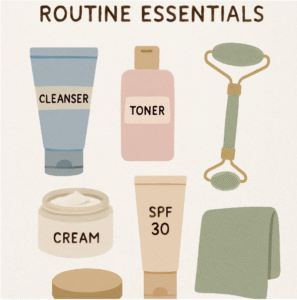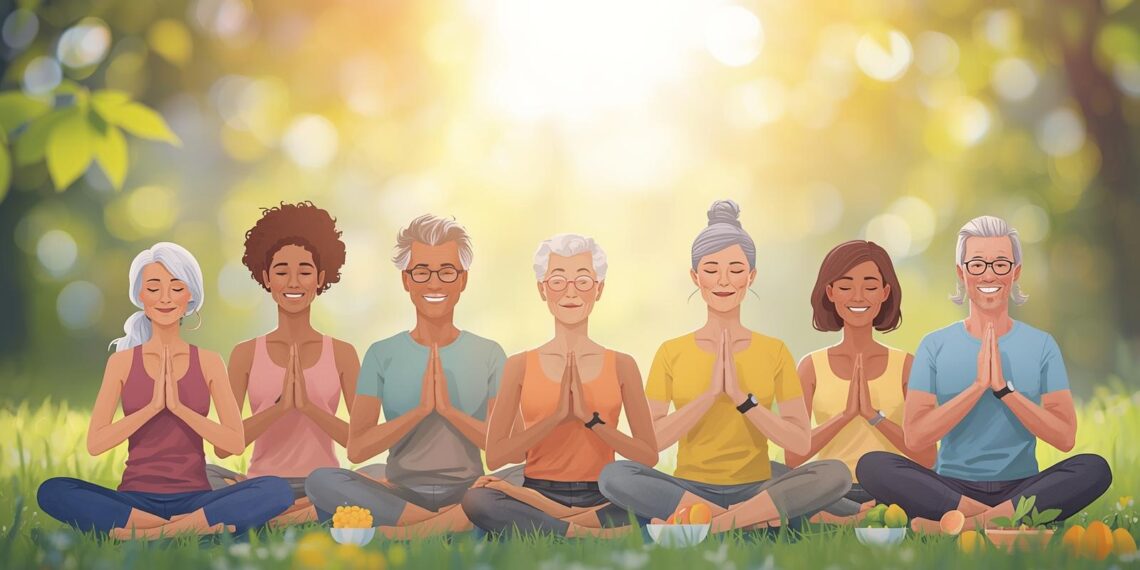Aging is an inevitable part of life, yet the desire to age gracefully and maintain vitality remains a universal aspiration. In recent years, the wellness industry has burgeoned with products and practices promising to slow the aging process. While magic solutions remain elusive, adopting certain essential habits can indeed help you age gracefully. This article explores the intersection of wellness trends and practical habits that can contribute to a more youthful existence.
Aging is a complex biological process influenced by genetic, environmental, and lifestyle factors. The visible signs of aging, such as wrinkles and gray hair, are merely surface indicators of deeper cellular changes. To slow the aging process effectively, we must understand it holistically—considering both our internal biology and external influences.
The Science Behind Cellular Aging
Cellular aging is a multifaceted process involving the gradual accumulation of damage to cells and tissues. Telomeres, the protective caps on the ends of chromosomes, play a crucial role in cellular aging. As we age, telomeres shorten, leading to decreased cell division and increased cellular dysfunction. Understanding these cellular mechanisms helps us recognize the importance of lifestyle choices that support telomere health.
Genetic Predispositions and Longevity
Genetics contribute significantly to how we age, influencing everything from skin elasticity to the risk of age-related diseases. Research into genetic markers associated with longevity provides insights into potential interventions that could promote healthier aging. However, while we cannot change our genetic makeup, we can adopt lifestyle habits that may counteract genetic predispositions.
Environmental Factors and Their Impact
Environmental factors such as pollution, UV radiation, and lifestyle choices like smoking and alcohol consumption can accelerate aging. These factors increase oxidative stress and inflammation, damaging cells and tissues. By minimizing exposure to harmful environmental influences and adopting protective measures, we can mitigate their impact on the aging process.

Essential Preventative Anti-Aging Tips
Adopting a lifestyle that includes essential preventative anti-aging tips can not only enhance your physical appearance but also your overall well-being. Here are some foundational habits to incorporate into your daily routine.
Prioritize a Balanced Diet
A balanced diet rich in antioxidants, vitamins, and minerals is vital in combating oxidative stress, a primary contributor to aging. Fruits, vegetables, whole grains, and lean proteins support cellular health and repair. Omega-3 fatty acids, found in fish and flaxseeds, are particularly beneficial for maintaining skin elasticity and reducing inflammation.
Foods that Fight Aging
Certain foods are known for their anti-aging properties due to their high content of antioxidants and essential nutrients. Berries, nuts, and leafy greens are packed with compounds that protect against cellular damage. Incorporating these foods into your diet can enhance skin health, improve cognitive function, and reduce the risk of chronic diseases.
The Role of Supplements
While a balanced diet is crucial, supplements can provide additional support in maintaining health as we age. Supplements such as collagen, vitamin D, and coenzyme Q10 have been shown to benefit skin health, bone density, and energy levels. However, it’s essential to consult with a healthcare professional before starting any supplement regimen.
The Impact of Processed Foods
Processed foods high in sugars, unhealthy fats, and artificial additives can accelerate aging by promoting inflammation and oxidative stress. Reducing the intake of processed foods and focusing on whole, natural foods can help protect against premature aging and improve overall health.
Stay Hydrated
Hydration is key to maintaining youthful skin. Water helps flush out toxins, aids in digestion, and keeps skin plump and radiant. Aim to drink at least eight glasses of water a day, and incorporate hydrating foods like cucumbers and watermelon into your diet.
Hydration Beyond Water
While water is essential, other beverages and foods contribute to hydration. Herbal teas, coconut water, and soups can provide additional fluids and nutrients. Choosing hydrating options with minimal added sugars or artificial ingredients supports overall hydration and health.
Signs of Dehydration
Recognizing the signs of dehydration is crucial for maintaining optimal health. Symptoms like dry skin, fatigue, and headaches can indicate insufficient fluid intake. Monitoring your hydration levels and making adjustments as needed can prevent dehydration-related aging effects.
Enhancing Skin Hydration
In addition to internal hydration, topical products can enhance skin moisture. Hyaluronic acid and glycerin are popular ingredients in skincare products for their ability to retain moisture in the skin. Incorporating these ingredients into your skincare routine can improve skin texture and appearance.
Skincare Routine for Aging Gracefully
A consistent skincare routine is essential for maintaining healthy, youthful skin. While skincare trends may come and go, certain foundational practices remain effective.
Cleanse and Moisturize Daily
Cleansing removes dirt, oil, and pollutants that accumulate on the skin, while moisturizing helps maintain skin’s natural barrier. Opt for gentle cleansers and hydrating moisturizers that suit your skin type to keep your skin clean and supple.
Choosing the Right Cleanser
Selecting a cleanser that suits your skin type is crucial for maintaining skin health. For dry or sensitive skin, choose a mild, hydrating cleanser that won’t strip the skin of its natural oils. Oily or acne-prone skin may benefit from a foaming or salicylic acid-based cleanser to control excess oil.
The Importance of Nighttime Routines
Nighttime is when the skin undergoes repair and regeneration. Establishing a nighttime skincare routine with products that support these processes can enhance skin health. Including retinoids and peptides can promote collagen production and reduce the appearance of fine lines.
Moisturizing for Different Skin Types
Moisturizers come in various formulations, from lightweight gels to rich creams, catering to different skin needs. Understanding your skin type and selecting appropriate products ensures optimal hydration and skin barrier protection. Incorporate serums or oils for additional nourishment if needed.
Protect Against Sun Damage
Sun exposure is a leading cause of premature aging. Applying sunscreen daily, even on cloudy days, can protect your skin from harmful UV rays. Look for broad-spectrum sunscreens with an SPF of at least 30, and consider wearing hats and sunglasses for added protection.
Understanding UV Rays
UV rays are classified into UVA and UVB rays, both of which can damage the skin. UVA rays penetrate deeply, contributing to aging, while UVB rays cause sunburn. Comprehensive sun protection involves defending against both types of rays, which is why broad-spectrum sunscreen is essential.
The Benefits of Antioxidant Sunscreens
Some sunscreens are fortified with antioxidants to provide additional protection against oxidative stress. Antioxidant sunscreens can neutralize free radicals generated by UV exposure, reducing skin damage. Incorporating these products into your routine can enhance sun protection.
The Role of After-Sun Care
After-sun care is vital for soothing and repairing skin after exposure to UV rays. Products containing aloe vera, chamomile, and hyaluronic acid can calm inflammation and replenish moisture. Implementing an after-sun routine can mitigate the effects of sun exposure on aging.
Incorporate Antioxidants
Antioxidants like Vitamin C and E are powerful allies in the fight against aging. They neutralize free radicals, reducing damage to skin cells. Incorporate antioxidant-rich serums or creams into your skincare routine to enhance skin health and appearance.
The Science of Antioxidants
Antioxidants work by neutralizing free radicals, unstable molecules that cause cellular damage. This process helps protect skin from environmental stressors and supports collagen production. A deeper understanding of antioxidant mechanisms can guide effective skincare choices.
Topical vs. Dietary Antioxidants
While topical antioxidants directly benefit the skin, dietary antioxidants contribute to overall health. Consuming a diet rich in antioxidant foods supports skin health from within. Combining topical and dietary antioxidants provides comprehensive protection against aging.
Popular Antioxidant Ingredients
Vitamin C, Vitamin E, and ferulic acid are popular antioxidants in skincare formulations. Each offers unique benefits, such as brightening skin tone, reducing inflammation, and enhancing the effectiveness of sunscreen. Experimenting with different antioxidant products can help tailor a routine to your specific needs.
Lifestyle Habits to Support Aging Gracefully
Beyond diet and skincare, your overall lifestyle plays a crucial role in how you age. Here are some practices to support graceful aging.
Exercise Regularly

Regular physical activity boosts circulation, supports heart health, and strengthens muscles and bones. Aim for at least 150 minutes of moderate aerobic exercise, such as walking or cycling, each week. Incorporate strength training exercises to maintain muscle mass and bone density.
Types of Beneficial Exercise
Different types of exercise contribute to aging gracefully. Cardiovascular exercises enhance heart and lung function, while strength training maintains muscle mass. Flexibility exercises, like yoga, improve joint health, and balance exercises, such as tai chi, reduce fall risk.
The Psychological Benefits of Exercise
Exercise offers psychological benefits, including improved mood and reduced stress levels. Physical activity releases endorphins, which enhance emotional well-being. Regular exercise can combat age-related mental health issues, such as depression and anxiety.
Creating a Sustainable Exercise Routine
Consistency is key to reaping the benefits of exercise. Designing a sustainable routine that fits your lifestyle ensures long-term adherence. Incorporating a variety of activities keeps exercise enjoyable and prevents burnout.
Manage Stress
Chronic stress accelerates aging by increasing inflammation and damaging cells. Techniques such as meditation, yoga, and deep breathing can help manage stress levels. Prioritize activities that bring joy and relaxation to enhance your mental and emotional well-being.
Understanding Stress and Aging
Stress triggers the release of hormones like cortisol, which can accelerate aging. Understanding the physiological effects of stress on the body emphasizes the importance of stress management strategies. Reducing stress can improve both physical health and quality of life.
Mindfulness and Meditation Techniques
Mindfulness and meditation are effective stress-reduction techniques that promote relaxation and mental clarity. Practices like guided meditation, mindfulness breathing, and body scans can be incorporated into daily routines. These techniques offer a holistic approach to managing stress.
Building a Stress-Resilient Lifestyle
Building resilience to stress involves developing coping strategies and a supportive environment. Establishing a network of supportive relationships and engaging in hobbies that promote relaxation can enhance resilience. A stress-resilient lifestyle fosters a more youthful and balanced existence.
Get Adequate Sleep
Sleep is a restorative process essential for cellular repair and overall health. Aim for 7-9 hours of quality sleep per night. Establish a regular sleep schedule and create a relaxing bedtime routine to improve sleep quality.
The Role of Sleep in Aging
Sleep supports numerous physiological processes, including cellular repair and hormone regulation. Insufficient sleep is linked to accelerated aging, increased risk of chronic diseases, and cognitive decline. Prioritizing sleep is crucial for maintaining health and vitality.
Creating a Sleep-Friendly Environment
A conducive sleep environment promotes restful sleep. Keeping the bedroom cool, dark, and quiet can enhance sleep quality. Incorporating calming rituals, such as reading or taking a warm bath, prepares the mind and body for sleep.
Addressing Sleep Disorders
Sleep disorders, such as insomnia and sleep apnea, can significantly impact health. Seeking professional guidance to address sleep issues is essential for improving sleep quality. Treatments may include lifestyle changes, therapy, or medical interventions.
Embracing Wellness Trends
The wellness industry continues to evolve, offering innovative products and practices to support aging gracefully. While staying informed about trends is valuable, it’s essential to critically evaluate their effectiveness and relevance to your unique needs.
Personalized Wellness Solutions
As consumers increasingly seek personalized solutions, the wellness industry is responding with tailored products and services. DNA-based skincare, personalized nutrition plans, and custom fitness programs are gaining popularity, emphasizing the importance of individualized approaches to wellness.
The Rise of DNA-Based Solutions
DNA-based solutions offer insights into individual genetic predispositions, guiding personalized wellness plans. These solutions can inform skincare routines, dietary choices, and fitness regimens. However, the science is still evolving, and it’s crucial to approach these solutions with a critical eye.
The Benefits of Personalized Nutrition
Personalized nutrition plans consider individual dietary needs, preferences, and health goals. By tailoring nutrition to specific metabolic and genetic profiles, these plans optimize health outcomes. Personalized nutrition can enhance energy levels, support weight management, and improve overall well-being.
Custom Fitness Programs
Custom fitness programs cater to individual fitness levels, goals, and preferences. These programs enhance motivation and adherence by providing tailored guidance and support. Personalized training plans can help achieve specific fitness objectives, such as weight loss or muscle gain.
Integrating Technology
Advancements in technology are reshaping the wellness landscape. Wearable devices, health apps, and virtual wellness platforms offer new ways to monitor health and engage with wellness practices. These tools can provide valuable insights into personal health metrics, enabling more informed lifestyle choices.
The Role of Wearable Technology
Wearable technology, such as fitness trackers and smartwatches, offers real-time monitoring of health metrics. These devices track activity levels, heart rate, and sleep patterns, providing insights into health behaviors. Leveraging wearable technology can support goal setting and progress tracking.
Health Apps and Virtual Platforms
Health apps and virtual platforms offer convenient access to wellness resources and support. From guided workouts to meditation sessions, these platforms provide diverse options for maintaining health. Virtual communities foster connection and accountability, enhancing engagement in wellness practices.
Data Privacy and Security
As technology integrates into wellness, data privacy and security become critical considerations. Protecting personal health information is essential for maintaining trust and safety. Understanding data policies and choosing reputable platforms ensures responsible use of technology in wellness.
Conclusion
Aging gracefully is a multifaceted journey that combines understanding the aging process with adopting essential habits and embracing relevant wellness trends. By prioritizing a balanced diet, maintaining a consistent skincare routine, and integrating supportive lifestyle habits, you can enhance your well-being and slow the aging process. As the wellness industry continues to evolve, staying informed and critically assessing new trends will empower you to make choices that align with your personal health and wellness goals.
In navigating the complexities of modern life, these essential habits not only contribute to aging gracefully but also enrich your overall quality of life. Embrace the journey with intention, and let the wisdom of wellness guide you towards a vibrant and fulfilling future. As you cultivate these habits, remember that aging gracefully is not about resisting the passage of time but about living with vitality, purpose, and joy at every stage of life.




